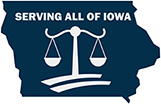- Clive Personal Injury Attorneys
- Phone: 641-792-3595
- Directions
When accidents and injuries disrupt lives, personal injury lawyers become crucial. They advocate for those harmed by others' negligence, ensuring they obtain rightful compensation. This article examines the important role personal injury lawyers fulfill in guiding people through the complexities of their claims and aiding in their recovery.
Do You Have to Accept the Insurance Company's Settlement?
In Iowa, you definitely do not have to accept an insurance company settlement offer, but there are several important considerations to keep in mind before making a decision.
Key Considerations Before Accepting a Settlement
1. Assessing Your Injuries
If your injuries are minor, you might be better off settling the case on your own to avoid having to pay an attorney a percentage of your settlement. However, if your injuries are more serious, consulting an attorney could help ensure you receive fair compensation.
2. Subrogation Concerns
If your medical bills have been paid by your health insurance or another insurance company, you need to know who will be reimbursing them. This process is called subrogation, and mishandling it can cost you your entire settlement.
3. Statute of Limitations
It is crucial to be aware of the statute of limitations for your claim. In Iowa, the statute of limitations for personal injury cases is generally two years. Missing this deadline could mean receiving nothing at all.
If you don't know the answers to any of these questions, it is strongly recommended that you at least contact and speak with a qualified Iowa injury attorney. Failing to do so could cost you thousands of dollars or even your entire case.
Settlement Negotiations
Negotiation Tips
1. First Offers: The insurance company's first offer is rarely their best offer. It is usually a starting point for negotiations.
2. Communication: Be careful about what you tell the insurance adjuster, as anything you say can and will be used against you in your claim and potentially in a lawsuit. Do not lie, but be mindful of disclosing prior injuries and accidents, which insurance companies can verify through shared databases.
3. Professionalism: Being polite and professional can go a long way. Threatening or hostile behavior towards the adjuster is counterproductive.
4. Preparation: Know your facts, including how the injuries happened, who you treated with, and the conditions diagnosed.
Evaluating the Value of a Claim
To evaluate the value of a claim, several factors must be considered:
- Severity and Extent of Injuries: Including multiple body parts injured.
- Objective Injuries: Such as broken bones.
- Hospitalization and Surgery: Whether hospitalization or surgery was required.
- Lost Wages: Time missed from work due to injuries.
- Insurance Coverage: Amount of available insurance coverage and the potential for an underinsured motorist claim.
Filing a Claim for a Head Injury from a Bike Accident
Bicyclists, especially those who don’t wear helmets, are at serious risk of sustaining head injuries in accidents with motor vehicles. Here’s a quick guide to help you understand the claims process for a bicycle accident in Iowa, the damages to which you may be entitled, and how to take the next steps.
Determining Liability
In Iowa, the party at fault for the injury is liable for damages. In a bike accident, the motor vehicle driver is often at fault, meaning their insurance will cover the damages.
Proving Liability
To prove liability, the following evidence can be crucial:
- Police Reports
- Physical Evidence from the Scene: Such as broken bicycle parts.
- Witness Testimony
You also need to prove that your head injury resulted directly from the accident.
Assessing Compensation
The insurance adjuster will determine the compensation amount based on:
- Extent of Injuries
- Medical Bills
- Lost Wages
- Bicycle Replacement Costs
If you were partially at fault, the compensation might be reduced. For instance, riding without rear lights at night could be seen as contributory negligence.
When a Settlement Isn't Enough
If the settlement offer isn’t sufficient, you have the right to negotiate for a higher amount or file a claim against the at-fault driver in civil court. Ensure you file your claim within the two-year statute of limitations.
Determining Fault in Motorcycle Accidents
Determining fault in an accident where a vehicle turns left in front of a motorcycle can be challenging. However, in most cases, the driver making the left turn is likely at fault.
Common Causes and Liability
Motorcycles can be difficult for other drivers to see, but this does not negate the motorist's responsibility to yield the right of way. By law, drivers must yield to oncoming traffic when making a left turn.
Exceptions
Exceptions include scenarios where the motorcyclist was speeding or ran a red light, which could diminish or eliminate the other driver’s liability.
We Are Here To Help
Remember, you are not alone in recovering from your injuries. We have helped thousands of Iowans through their physical, emotional, and financial recoveries. If you have questions about what you are going through, feel free to call our office for your confidential injury conference. We will take the time to listen to you and give you our advice concerning your injury matter at no cost or risk to you.
Free Book at No Cost
If you are not ready to speak with an attorney yet but would like to learn more about Iowa injury cases including tips about how you can avoid making common costly mistakes request a copy of our Iowa Personal Injury book which includes 14 myths about Iowa injury cases and 5 things to know before hiring an attorney.
If you have specific questions about your injury matter feel free to call our office to speak with our Injury team at 641-792-3595 or use our Chat feature by clicking here 24 hours a day/7 days per week. Your information will remain confidential and there is no cost or obligation.

